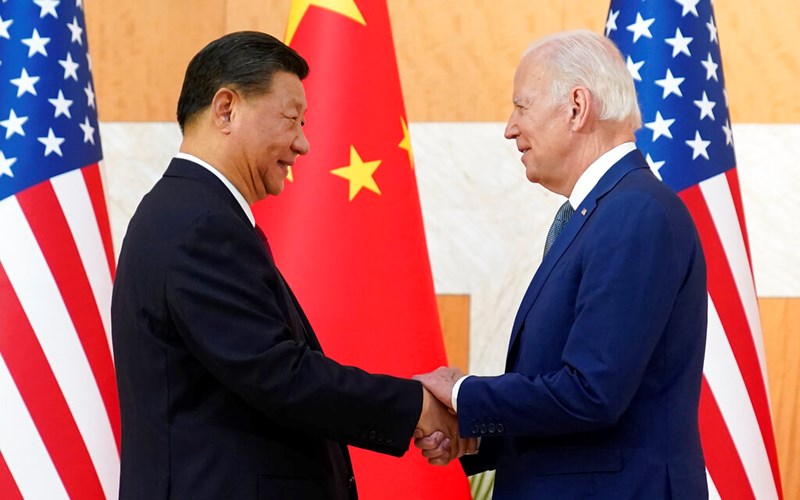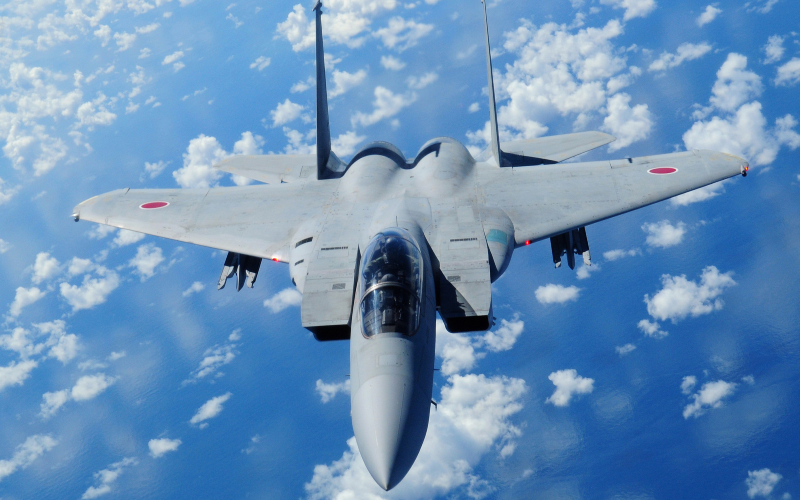The memo from General Mike Minihan was intended for officers of the Air Mobility Command, which provides transport and refueling support around the globe, but the general’s urgent warning to improve airmen training got leaked to the public.
NBC News, in a Jan. 27 story, appeared to be the first news outlet to report on the memo that urges the AMC to become “a fortified, ready, integrated, and agile Joint Force Maneuver Team ready to fight and win inside the first island chain.”

The general also orders officers under his command to step up their training and to report their efforts so far by a deadline of February 28.
In the memo, General Minihan speculates war is coming sooner than later partly because of politics: Presidential elections are coming in 2024 in both the U.S. and in Taiwan, he writes, which gives China’s president a “distracted America.” Over in China, he points out, President Xi secured a third term last fall and therefore put his “war council” in place.
Kirk Lippold, a retired U.S. Navy commander, tells AFN he feels sorry for Gen. Minihan for being so “blunt and honest” in light of “political posturing” in the Pentagon, the White House, and on Capitol Hill.
 Considering the Pentagon publicly expects an eventual attack on Taiwan, Lippold says the goal of the Pentagon should be to prepare for that fight, be ready when it comes, and to win that fight if it happens.
Considering the Pentagon publicly expects an eventual attack on Taiwan, Lippold says the goal of the Pentagon should be to prepare for that fight, be ready when it comes, and to win that fight if it happens.
“Saying that out loud,” he tells AFN, “is something that our military leadership should be very comfortable with.”
But the Pentagon’s response to Gen. Minihan’s blunt memo only reinforces Lippold’s cynicism about a military unprepared for a terrible battle for control of the 245-mile-long island. An unnamed defense official told Fox News the General’s comments “are not representative of the department’s view on China.”
In an official statement, the Pentagon’s press secretary said the “focus” is to work with allies in the region to preserve a “peaceful, freed, and open Indo-Pacific.”
U.S. would beat China at terrible cost
In a previous story, published last summer, AFN reported the wargaming of a U.S.-China battle ended with horrific casualties on both sides. After a think tank went through 22 different scenarios over a year’s time, the U.S. emerged the winner but with two irreplaceable aircraft carriers sunk and 10,000 sailors at the bottom of the Taiwan Strait. The U.S. was also projected to lose half its bombers and fighters, additional navy ships, and the bodies of thousands of dead military servicemembers would be shipped back home.
 “I don’t think [China] would win in a war against the United States,” Gordon Klingenschmitt, a former Air Force officer, tells AFN. “I think if they invaded Taiwan, that would be a strategic mistake on their part because I think the United States would go to war with China – as this Air Force four-star general predicted.”
“I don’t think [China] would win in a war against the United States,” Gordon Klingenschmitt, a former Air Force officer, tells AFN. “I think if they invaded Taiwan, that would be a strategic mistake on their part because I think the United States would go to war with China – as this Air Force four-star general predicted.”
According to a Military.com story about the leaked memo, Gen. Minihan is known for his “loud, proud and high-energy persona.” He has led the Air Mobility Command since 2021, the article said.
For the article, some officers under General Minihan’s command commented anonymously for the story. One of them complained some of his airmen “are going to get scared” when they read the memo. That officer called it “inappropriate.”
 Other officers mocked their general for his dramatic advice to officers to “aim for the head” of targets during weapons training for combat.
Other officers mocked their general for his dramatic advice to officers to “aim for the head” of targets during weapons training for combat.
In one of the war-gaming scenarios done last year, a C-17 Globemaster is attempting to resupply U.S. Marines running low on munitions when the aircraft is shot down by the People’s Liberation Army.
That aircraft, which cost $340 million to build before it falls to earth over Taiwan, falls under the command of Air Mobility Command and its commander, Gen. Minihan.







